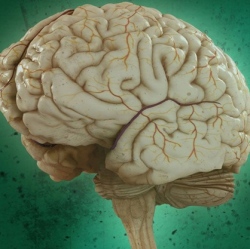
Alzheimer’s could be caused by viruses like herpes, a group of renowned dementia experts have warned, as they call for urgent investigation into the link. The team of 31 senior scientists and clinicians, including specialists from Oxford, Cambridge, and Imperial College, have written an article suggesting that microbes are the major cause of dementia.
The herpes virus, the type that causes cold sores, and chlamydia bacteria are named as the major culprits, as well as a type of corkscrew-shaped bacteria called a spirochete. Currently scientists are trying to find treatments that prevent the buildup of sticky amyloid plaques and misfolded tau proteins in the brain that prevent neurons from communicating with each other, leading to memory loss and cognitive decline.
But the editorial in the Journal of Alzheimer’s Disease suggests that viral or bacterial infections trigger the plaque buildup in the first place. Targeting them specifically with antimicrobial drugs could halt dementia. Professor Douglas Kell of the University of Manchester’s School of Chemistry said, “We are saying there is incontrovertible evidence that Alzheimer’s disease has a dormant microbial component. We can’t keep ignoring all of the evidence.”
There are at least 5.3 million people living with dementia in the US, with that number due to rise to 7.1 million by 2025 and 13.8 million by 2050. But despite 412 drug trials taking place between 2002 and 2012, nothing has been shown to combat the disease.
The authors say that viruses and bacteria are common in the brains of elderly people, and although they are usually dormant, they can “wake up” after stress or if the immune system is compromised. Around two-thirds of people will acquire the herpes virus at some point in their lives, and many will not realize they have it.
The herpes virus in particular is known to damage the central nervous system, and the limbic system in the brain that regulates mood and instinct and is associated with mental decline and personality changes. Viral infections in the brain are already known to cause symptoms similar to Alzheimer’s, and the experts say the link has been “neglected” for too long.
“We write to express our concern that one particular aspect of the disease has been neglected, even though treatment based on it might slow or arrest Alzheimer’s disease progression,” they write.
They say the new findings could also have implications for the future treatment of Parkinson’s disease and other progressive neurological conditions.
Professor Resia Pretorius of the University of Pretoria in South Africa, who also worked on the editorial, said, “The microbial presence in blood may also play a fundamental role as causative agent of systemic inflammation, which is a characteristic of Alzheimer’s disease.
Dementia charities said they had noticed that viruses and bacteria were more common in people with Alzheimer’s disease.
Dr. James Pickett, head of research at the Alzheimer’s Society, said, “A large number of different microbes, including viruses, bacteria and fungi, have been found in the brains of older people, but there do appear to be more of them in the brains of people who have died with Alzheimer’s disease.
“While these observations are interesting and warrant further research, there is currently insufficient evidence to tell us that microbes are responsible for causing Alzheimer’s disease in the vast majority of cases. We would like to reassure people that there remains no convincing evidence that Alzheimer’s disease is contagious or can be passed from person to person like a virus.
